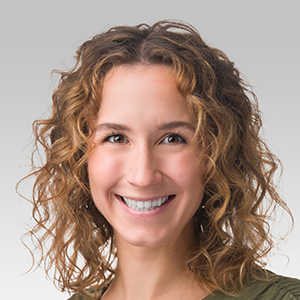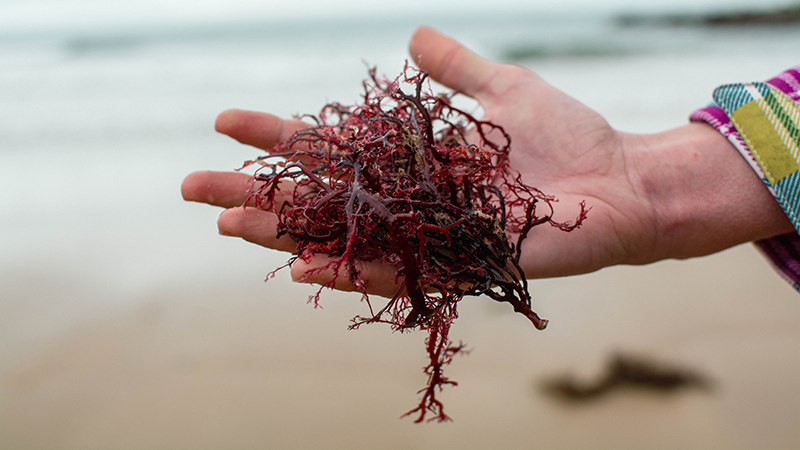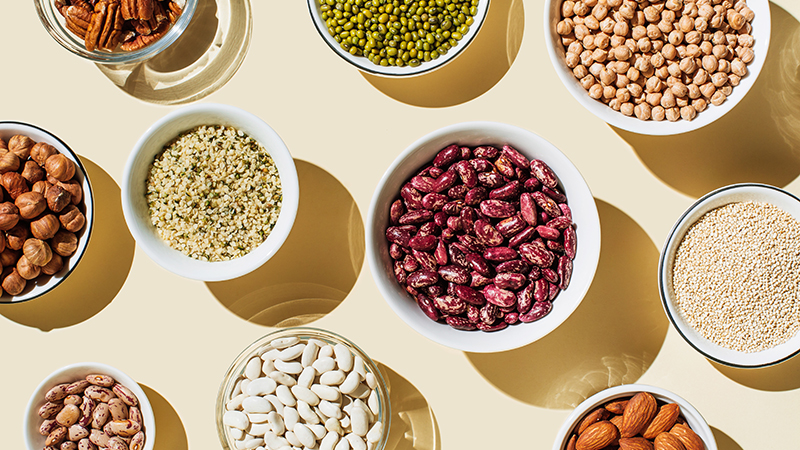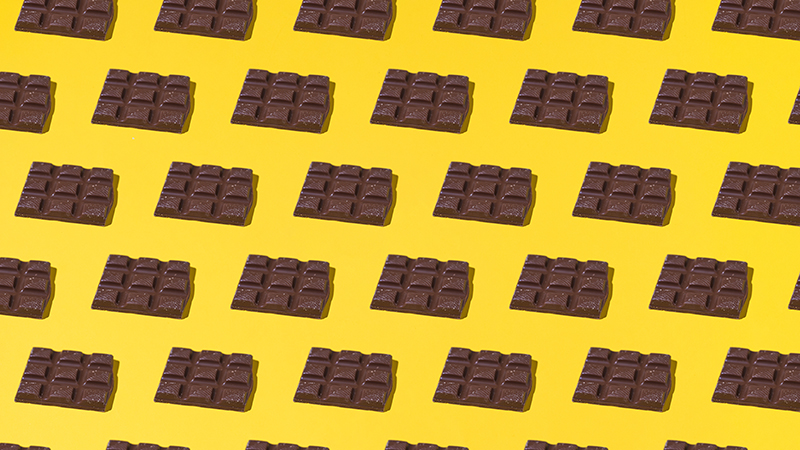Can What You Eat Prevent Cancer?
Experts Set the Record Straight on Cancer and Your Diet
Published April 2024
Search "cancer and nutrition" online and you'll get pages and pages of information that may or may not be medically accurate. Unfortunately, misinformation can lead to unnecessary and sometimes harmful changes to your diet, which can affect your health.
Northwestern Medicine and Shirley Ryan AbilityLab Cancer Rehabilitation Physician-Scientist Ishan Roy, MD, PhD, and Hannah M. Manella, RD, CET, Northwestern Medicine oncology dietitian and exercise therapist, have extensive experience working with patients living with cancer. Together, they debunk some common myths and misconceptions about cancer and nutrition.
Focusing just on sugar is missing the mark on cancer prevention.— Ishan Roy, MD, PhD
Does sugar feed cancer?
Manella says this is the top question she is asked by patients. The short answer is that you can't starve cancer by eliminating sugar. There is no strong evidence that sugar is a cancer-causing substance or that consuming it makes cancer cells grow faster. However, the over-consumption of sugar, particularly added sugars in beverages and foods, can lead to obesity, which is an important risk factor for cancer.
"Long-term epidemiology studies show that if you have higher sugar intake, there's a small increase in your odds of having cancer. But those odds are slight compared to bigger picture issues like obesity, which has a much, much higher risk for cancer than just taking in extra sugar," explains Dr. Roy. "The reasons that obesity increases your cancer risk are complex, but we know that people who are obese have larger storages of fat. These larger fat storages often are associated with systemic inflammation. When you have more inflammation, you're at higher risk of many types of cancers."
Smoking and alcohol are also big risk factors. According to Dr. Roy, "Focusing just on sugar is missing the mark in the bigger lifestyle picture of cancer prevention."
Can artificial sweeteners cause cancer?
"At this time, there is no strong data to suggest that artificial sweeteners are directly linked to cancer risk," says Manella. Since there is currently no clear evidence that artificial sweeteners cause cancer, Manella asks patients what their comfort level is around consuming it. "I leave it up to the patient whether or not they want to keep it in their diet."
Should processed meats be avoided?
There is strong evidence that eating processed meats that are salted, smoked, cured or have added chemical preservatives increase your risk of cancer, specifically colorectal cancer. Examples of processed meats include:
- Bacon
- Ham
- Frankfurters
- Deli meats
- Beef jerky
- Sausage
"Try to find alternatives," says Manella. She recommends a grilled chicken breast, hummus or peanut butter instead of deli meats. "It's not going be perfect all the time," she adds. "Go to the ballpark and have a hot dog. Just try to make better substitutions when you can. It will go a long way."
Is a low-carb, high-fat ketogenic diet good for preventing cancer or recurrence?
"We don't have strong evidence to suggest a ketogenic diet during cancer treatment or as a preventive measure," says Manella. If anything, she explains, it puts people at risk of losing muscle mass because their diet becomes so restrictive. The loss of muscle mass can add further complications. Manella says it's good to be intentional about reducing carbohydrates since many people overeat them, but to also be intentional about eating enough colorful fruits and vegetables, which provide plenty of nutrition.
Can supplements help?
The American Institute for Cancer Research and the U.S. Food and Drug Administration (FDA) does not support the use of dietary supplements as an effective strategy to reduce cancer risk. Dietary supplements are not regulated by the FDA and may negatively interact with cancer treatment.
Manella shares turmeric as an example, which is an herb known to interfere with some chemotherapies. "From an active treatment perspective, this is kind of a high-risk herb to be taking because it could potentially either increase or decrease the efficacy of your cancer treatment," she explains. "If you eat a well-rounded diet, there's no need to take a supplement."
If you feel like you need a dietary supplement, discuss it with your physician.
What about "juicing"? Does it help stop cancer?
Drinking the juice from fruits and vegetables can be a good way to add more fruits and vegetables to an already healthy diet, but they should not be used as the sole method to meet your basic nutrient needs. Juicing significantly reduces the consumption of macronutrients (fat, protein and carbohydrates), as well as the amount of necessary fiber in your diet. Many of a fruit's nutrients (polyphenols and antioxidants), as well as natural sugars, are found in the fiber. These fibers help your body absorb the sugar better, whereas juicing provides more of a sugar rush.
Instead:
- Try to eat whole foods for at least half of your recommended daily fruits and vegetables.
- Aim for variety in your diet.
- Add protein, whole grains and a calcium source to your daily diet.
Are organic foods better than conventional foods?
There is not enough evidence that organic foods are better at preventing cancer than nonorganic foods. Studies have shown organic produce contains small to moderate increases in some nutrients.
The bottom line is that the more plant-based foods you can include in your diet — organic, conventional or frozen — the better. The benefits far outweigh any risks related to pesticides or fertilizers.
Useful Strategies
You can reduce your risk of all cancers by almost 42% by eating well and staying active. More specifically, aim to:
- Eat a balanced diet with a variety of fruits, vegetables, whole grains, legumes, nuts and seeds.
- Exercise regularly. The American Cancer Society recommends adults get between 150 to 300 minutes per week of moderate intensity activity, or between 75 to 150 minutes per week of vigorous intensity activity, or a combination of the two.
- Maintain a healthy body weight.
- Avoid red and processed meat.
- Avoid smoking and limit your alcohol consumption.
You are heading in the right direction if half of your plate consists of fruits and vegetables, says Manella. She suggests looking at your plate and asking yourself, "Where's my color." Think side salad with dark leafy greens, carrots and red peppers, along with brown rice, a grilled chicken breast, and a bowl full of berries. Eating the rainbow can be easier than you think.







